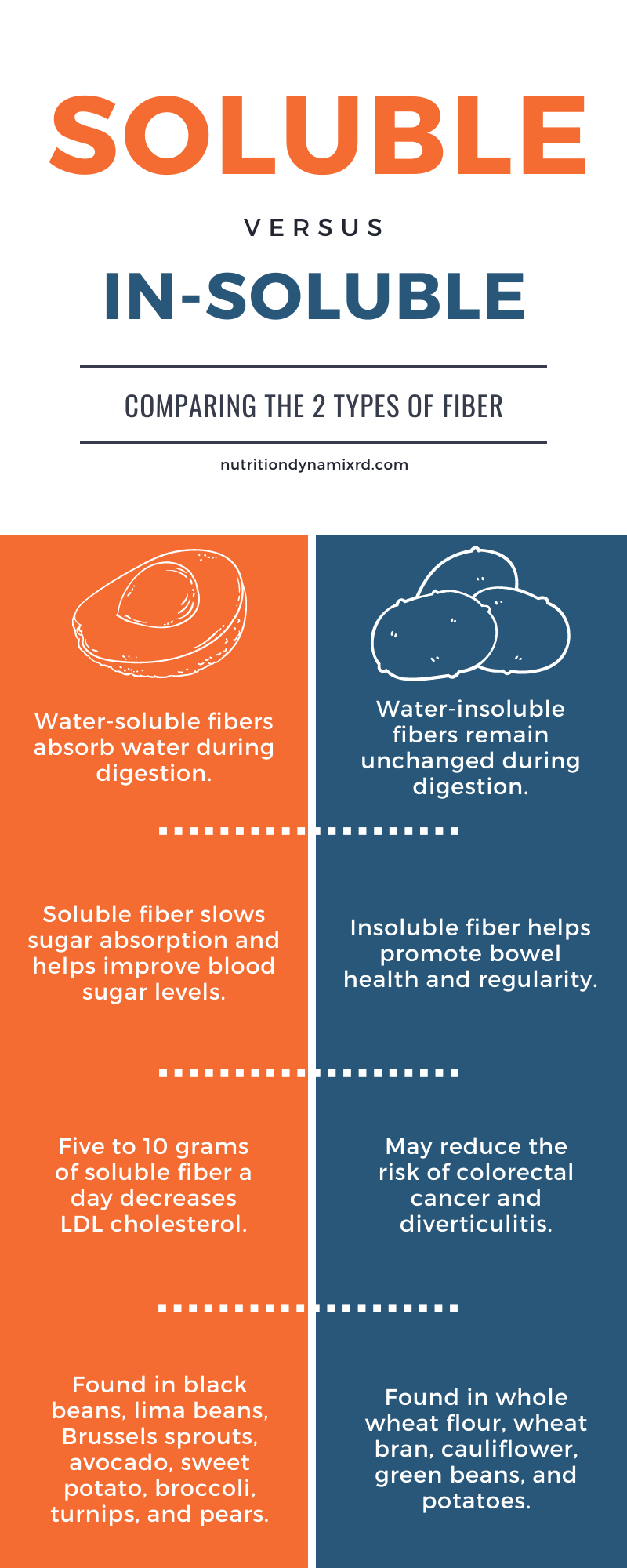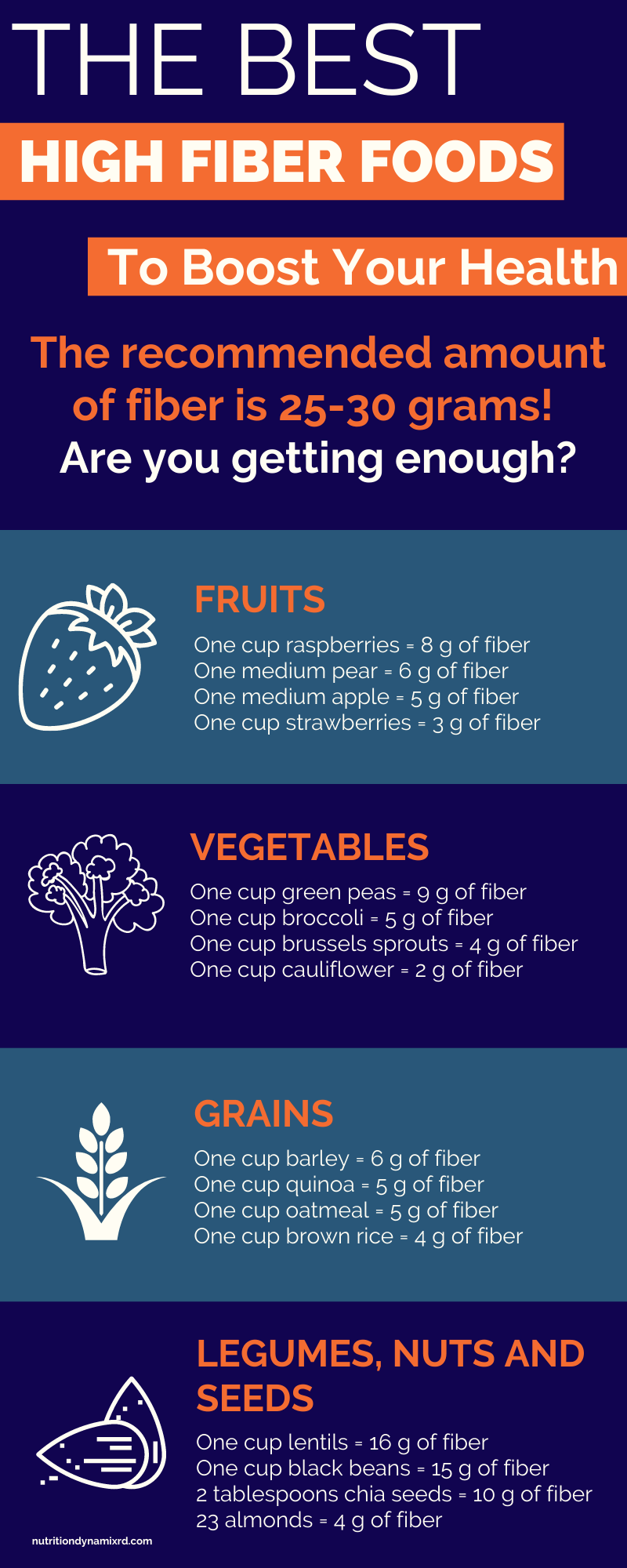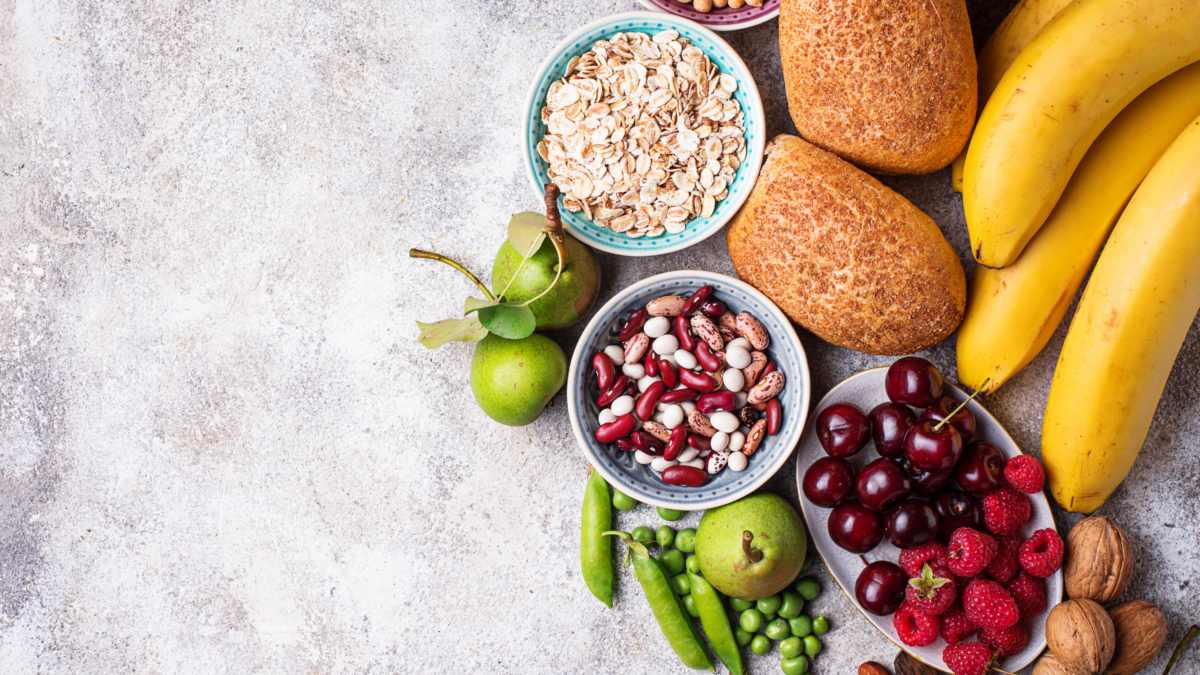Fiber is an important part of your diet. Not only does it help maintain regular bowel movements and hunger levels, but it can also help lower cholesterol and decrease the risk of diabetes and heart disease. If you eat enough fiber, you can greatly benefit your overall health and wellness. Unfortunately, the average American only eats around 16 grams of fiber per day. This is only half of the recommended amount! So, what can you do to boost fiber in your diet? Why is fiber important to eat, and how much should you have? Read on to learn more!
How to Boost Fiber in Your Diet
Fiber is important for everyone, but it’s even more important for those with certain health conditions! People who have blood sugar problems (such as pre-diabetes or diabetes mellitus), high cholesterol, bowel irregularity/constipation, or want to lose weight will greatly benefit from having enough fiber every day. This is because fiber can slow how fast sugar enters the bloodstream; helps reduce LDL cholesterol; and sustain hunger levels. There are so many benefits!
If you have IBS (or suspect you may have IBS), contact a Registered Dietitian Nutritionist so they can help you tailor your diet to your specific needs. Making sudden changes in your fiber intake could make your symptoms worse in the case of IBS.
Types of Fiber
There are two different types of fiber: soluble and insoluble. Each one has different properties and characteristics, but it’s important to consume a mixture of both every day. So, what are the differences between the two?
Soluble fiber will help soften stool to allow it to easily pass through the digestive system. It can help regulate blood sugar levels, lower cholesterol, reduce the risk of heart disease, and helps with weight management. In addition, soluble fiber boosts good gut bacteria, which is linked to improved immunity and anti-inflammatory effects.
Insoluble fiber isn't broken down by the gut and absorbed into the bloodstream; rather, it remains unchanged during digestion. This will add bulk to your stool which helps to prevent constipation and may reduce the risk of diverticulitis and colon cancer.

Recommended Amount
It’s recommended to consume at least 25 grams of fiber every day. I have some of my patients striving for 35 grams or more! However, those with IBS, Crohns disease, diverticulitis or other GI conditions need to be assessed by a Registered Dietitian Nutritionist on an individual basis.
Fibrous Foods to Boost in Your Diet
To amp up the amount of fiber in your diet, be sure to increase your vegetables, whole grains, beans/legumes, and fruit intake. Vegetables are a great low calorie and high nutrient food that will fit well in most diets. Below is a chart that gives some good examples of high fiber foods. Be sure to save it for future reference!

Fiber Supplements
Fiber supplements are not a substitute for proper nutrition, but they can be used when help is needed. Research also shows that soluble fiber supplementation can be beneficial in bringing down artery clogging LDL cholesterol. I commonly recommend psyllium and acacia fiber supplements to certain patients in my practice.
Schedule an appointment today to talk about how diet changes can help you! Your health insurance may be able to cover your visits at no cost to you. Nutrition Dynamix takes pride in assessing each patient’s individual needs. There is no single diet that is perfect for everybody’s health.
If you liked this post, check out some of my other articles:
Can A Low FODMAP Diet Help Your Irritable Bowel Syndrome (IBS)?
How Important is Organic Produce for Inflammation?


